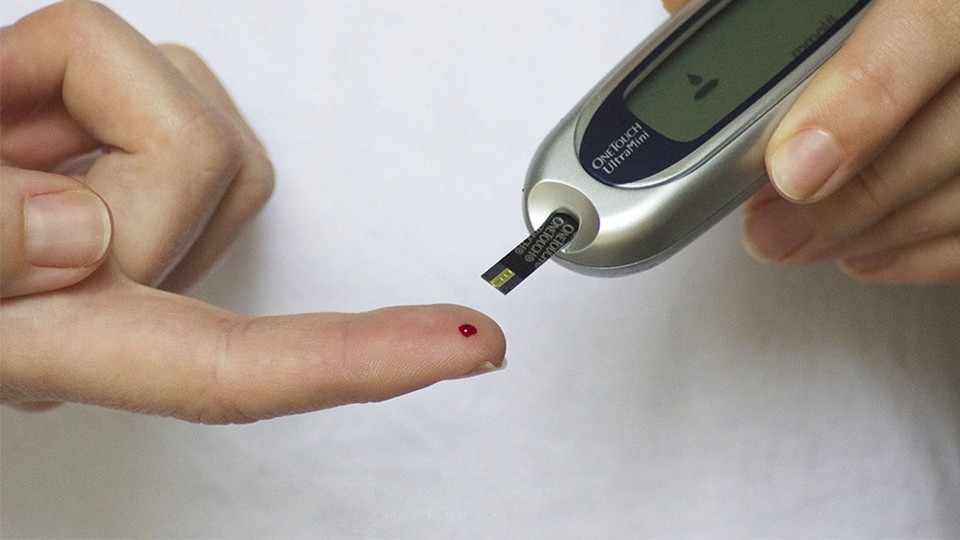Diabetes diagnoses hit over 188,000 across Greater Manchester, new analysis shows
Date published: 15 April 2023

Diabetes UK estimates there are an additional 850,000 people living with diabetes who are yet to be diagnosed, bringing the overall UK-wide figure beyond the five-million mark
New analysis released by Diabetes UK shows the number of people diagnosed with diabetes in Greater Manchester has increased from 178,735 to 188,402 since last year.
In Greater Manchester, the area with the highest prevalence is Bolton where 8.84 per cent of people have been diagnosed with diabetes.
The lowest in Greater Manchester is Salford with 6.54 per cent while the national average for England is 7.3% per cent.
The figures show that 4.3 million people are now living with a diagnosis of diabetes in the UK, with approximately 90 per cent of the cases being type 2.
About 8% are type 1, with the other forms of the condition make up the remaining 2%.
Diabetes UK estimates there are an additional 850,000 people living with diabetes who are yet to be diagnosed, bringing the overall UK-wide figure beyond the five-million mark.
Diabetes UK says the shocking figure underlines why diabetes must be a key part of local health leaders’ plans and central to the Government’s forthcoming Major Conditions Strategy.
The focus must be on preventing type 2 diabetes, supporting those at high risk and working to reduce health inequalities in communities where the prevalence of type 2 is worryingly higher than the general population, argues the charity.
The risk factors of type 2 diabetes are multiple and complex.
They include age, family history and ethnicity, as well as living with overweight or obesity.
Social deprivation is also an issue.
Factors such as income, education, housing, access to healthy food, as well as poorer access to healthcare, have been shown to be strongly linked to an increased risk of developing several health conditions – including obesity and type 2 diabetes.
More than 2.4 million people at high risk of developing type 2 diabetes in the UK and Diabetes UK is worried that the high numbers of people living with overweight or obesity across the country – currently 64% of adults in England – is translating into an increase in cases of type 2.
Alarmingly, the condition is becoming increasingly common among those under the age of 40 and more prevalent in areas where there are higher levels of deprivation.
While numbers of under 40s with type 2 diabetes remain a small proportion of total cases, it is known to have more severe and acute effects on younger people.
Without the right care and support, people with all types of diabetes can be at risk of developing serious complications.
Every week, diabetes leads to 184 amputations, more than 770 strokes, 590 heart attacks and 2,300 cases of heart failure.
Diabetes UK says urgent action is required and is calling for:
Integrated Care Systems to put diabetes at the heart of their action plans to reduce health inequalities, targeting communities where diabetes prevalence is high.
A firm commitment to diabetes in the Major Conditions Strategy, including a continued focus on identifying those at high risk of type 2 diabetes and ensuring they are supported to reduce their risk by referral to the NHS Diabetes Prevention Programme.
The Government to push ahead with its stalled obesity strategy without further delay, including implementing delayed plans to limit junk food advertising to children, to stop people being pushed towards unhealthy food options.
Clare Howarth, Head of the North of England at Diabetes UK, said: “Diabetes is serious, and every diagnosis is life changing.
"It’s a relentless condition, and the fear of serious complications is a lifelong reality for millions of people across the UK.
“These latest figures show we’re in the grip of a rapidly escalating diabetes crisis, with spiralling numbers of people now living with type 2 diabetes and millions at high risk of developing the condition.
“But it doesn’t have to be this way.
"With the right care and support, cases of type 2 diabetes can be prevented or put into remission.
"What we need to see is the will, grit and determination from Government and local health leaders to halt this crisis in its tracks and improve the future health of our nation for generations to come.”
Being aware of the signs and symptoms of diabetes is important.
They include the 4Ts of Toilet (going for a wee a lot, especially at night), Thirsty (being really thirsty), Tired (feeling more tired than usual) and Thinner (losing weight without trying).
You can understand your personal risk of type 2 diabetes by using Diabetes UK’s free, online Know Your Risk tool.
It takes just a few minutes to complete and advises you on your risk and suggests next steps to help reduce your risk.
For more information about the signs and symptoms of all types of diabetes, and the Know Your Risk tool, visit: diabetes.org.uk
Do you have a story for us? Want to tell us about something going on in and around Oldham? Let us know by emailing news@oldham-chronicle.co.uk , calling our Oldham-based newsroom on 0161 633 2121 , tweeting us @oldhamchronicle or messaging us through our Facebook page. All contact will be treated in confidence.




